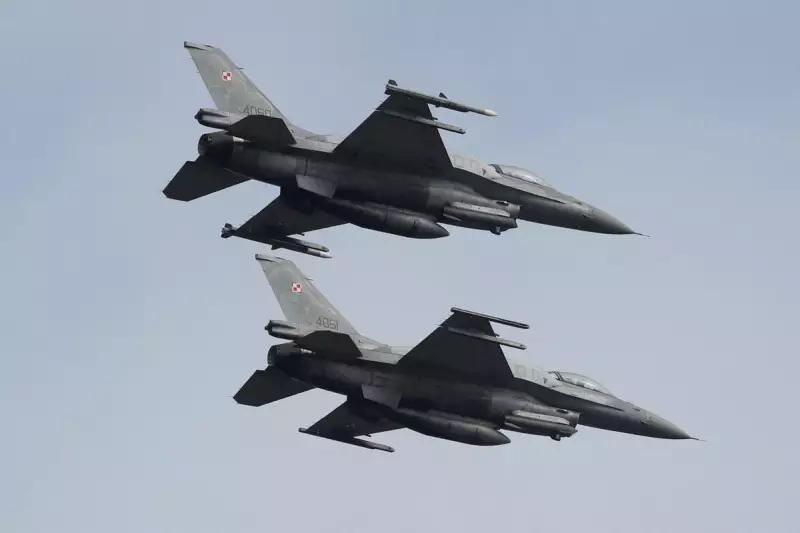
In a dramatic display of aerial brinkmanship, a Russian intelligence-gathering aircraft was intercepted by NATO fighter jets while operating in international airspace over the Baltic Sea near Poland's borders.
The incident, which occurred on Tuesday, saw the Russian IL-20 'Coot-A' surveillance plane being shadowed by allied fighters as part of NATO's enhanced Air Policing mission. Defence officials confirmed the aircraft was monitored throughout its flight path in the strategically sensitive region.
Heightened Tensions in Baltic Airspace
The Baltic Sea has become a focal point for military activity in recent years, with NATO increasing its vigilance following Russia's invasion of Ukraine. This latest interception underscores the ongoing aerial cat-and-mouse games playing out in the region's skies.
The IL-20 aircraft, known for its distinctive bulbous nose housing sophisticated surveillance equipment, is capable of intercepting communications and gathering electronic intelligence. Its presence so close to NATO territory represents a significant provocation at a time of already strained international relations.
NATO's Rapid Response Capability
Polish authorities, working in coordination with NATO allies, scrambled fighter jets to identify and monitor the Russian aircraft. The swift response demonstrates the alliance's commitment to collective defence and airspace security in Eastern Europe.
This incident follows a pattern of increased Russian military aviation activity around NATO borders, with similar intercepts occurring regularly over the Baltic, Black, and North Seas. Defence analysts note that such operations serve both intelligence-gathering purposes and as demonstrations of military capability.
Regional Security Implications
The Baltic Sea region remains particularly sensitive due to its strategic importance and the presence of NATO members with direct borders to Russian territory. The Kaliningrad exclave, a heavily militarised Russian territory sandwiched between Poland and Lithuania, adds another layer of complexity to regional security dynamics.
Military experts suggest that while such intercepts are conducted professionally and according to international protocols, they carry inherent risks of miscalculation or escalation. The proximity of military aircraft from opposing forces in contested airspace requires precise coordination and communication to avoid dangerous incidents.
As NATO continues to bolster its eastern flank defences, such aerial encounters are likely to remain a feature of the new security reality in Europe. The alliance has significantly reinforced its air policing missions across the Baltic states and Poland since Russia began its full-scale invasion of Ukraine in February 2022.





